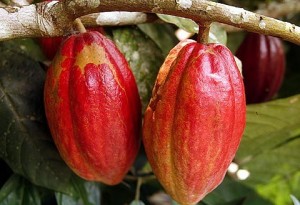Now that Ghana is middle income what happens to the 42% ODA support for national budget?
 The World Bank reclassified the economic status of Ghana as middle income on July 1, 2011.
The World Bank reclassified the economic status of Ghana as middle income on July 1, 2011.
According to the Bank, Ghana was reclassified from a lower income to a low-middle income country. The Bank’s classification therefore means Ghana becomes one of the developing countries of the world where average per capita income ranges between $1,006 to $3,975.
Earlier, the Ghana Statistical Service (GSS) rebased the country’s economy in November 2010 and indicated that the country’s per capita was $1,343 with a GDP value of $32.5 billion.
Revenues from oil and the performance of Ghana’s main exports; cocoa and gold have supported the economy’s growth.
These positive developments have raised questions as to whether Ghana should continue to be a donor recipient country. While some argue that the attainment of middle- income is only one of statistics, others maintain that major challenges like northern and southern regional disparities, high unemployment, and other social challenges remain. In respect of these challenges, Overseas Development Assistance (ODA) has been increased by many of Ghana’s donors who have realised that all non-income Millennium Development Goals (MDGs) targets are likely to be missed.
Having attained middle income status, it could be said that Ghana has progressed to a state requiring less ODA.
But Ghana is very donor dependent.ODA now accounts for about 42% of the national budget.
One major development assistance modality that has been supporting Ghana’s strive towards middle income status is the Multi-Donor Budget Support (MDBS) mechanism. This mechanism involves 11 donors who contribute financial resources directly into the government’s budget.
The MDBS which began in 2002, constitutes about 30% of development aid to the government of Ghana and has since contributed over $2 billion to the country’s budget.
In response to Ghana’s middle income status , budgetary support from the MDBS seems to be dropping. In 2009 for instance, Development Partners (DPs) contributed approximately $525 million through MDBS. For 2010, a slightly lower figure of $451 million will be disbursed. Disbursement is usually based on the government’s achievement of triggers and targets. However, observers attribute the drop in contributions from DPs to Ghana’s progress to middle income status.
One of the current 11 contributing countries and institutions has withdrawn from the MDBS. Donors contributing to MDBS are the African Development Bank (AfDB), France, Canada, Switzerland, Japan, Germany, UK, Denmark, the EU, the World Bank and the Netherlands. But the Netherlands has withdrawn from the MDBS for reasons that include Ghana’s attainment of middle income status after reviewing its programmes for international assistance.
Meanwhile, even though Ghana has been classified as a middle income country, it will take two years for the World Bank to certify the country.
However, as middle income country, Ghana has become ineligible for concessional loans, which are often given without any interest. And at a press briefing in June 2011, the former Ghana Country Director of the World, Ishac Diwan told journalists that the Ghana government has already made presentations to the Bank to assist the country transition into the next stage of lending which is the non-concessional loan stage where the country would be weaned off international aid and has to secure loans from the International Bank for Reconstruction which comes with interest.
How would the country fare after all the donor support is gone?
By Emmanuel K. Dogbevi
